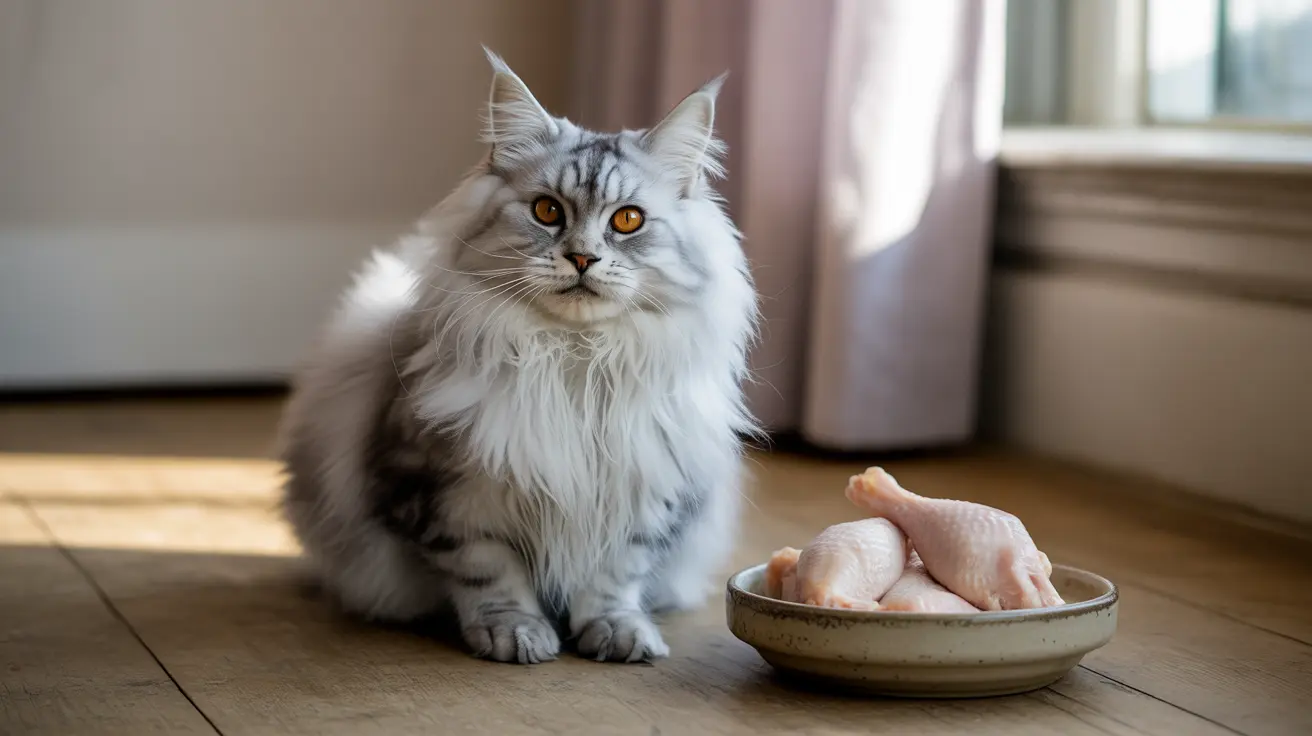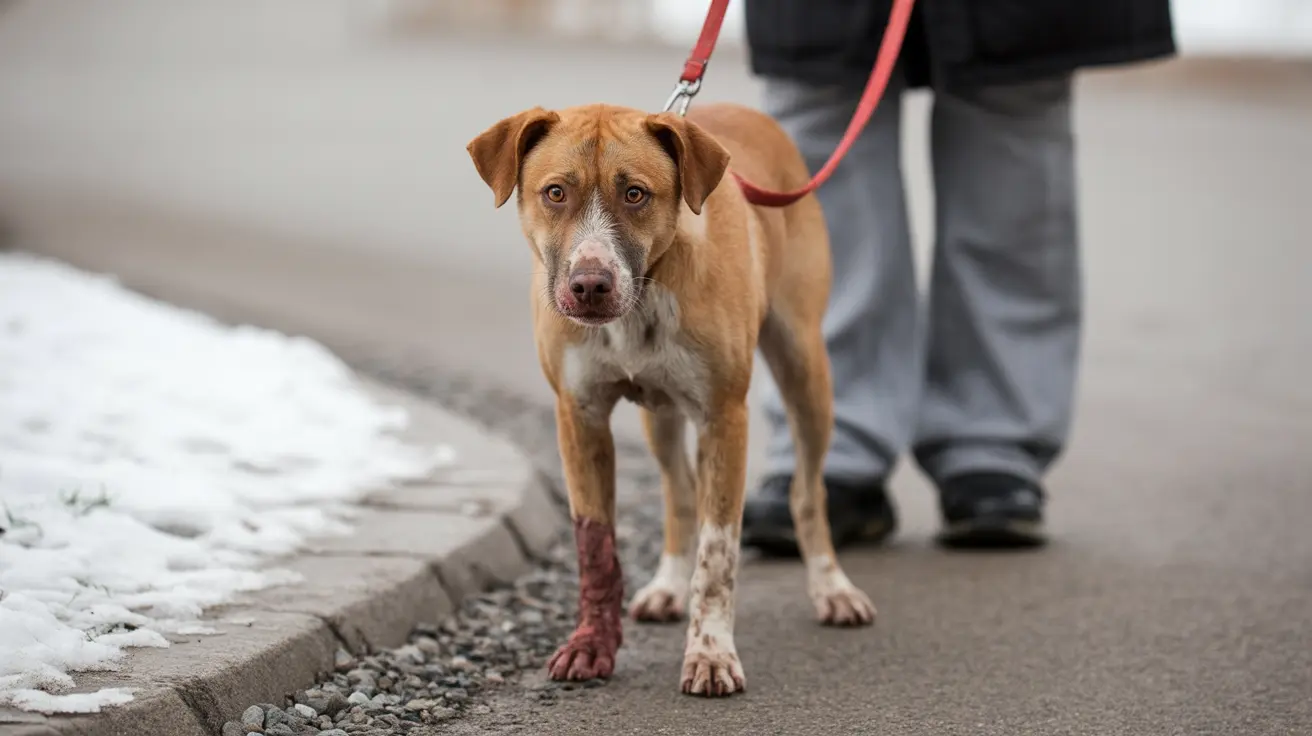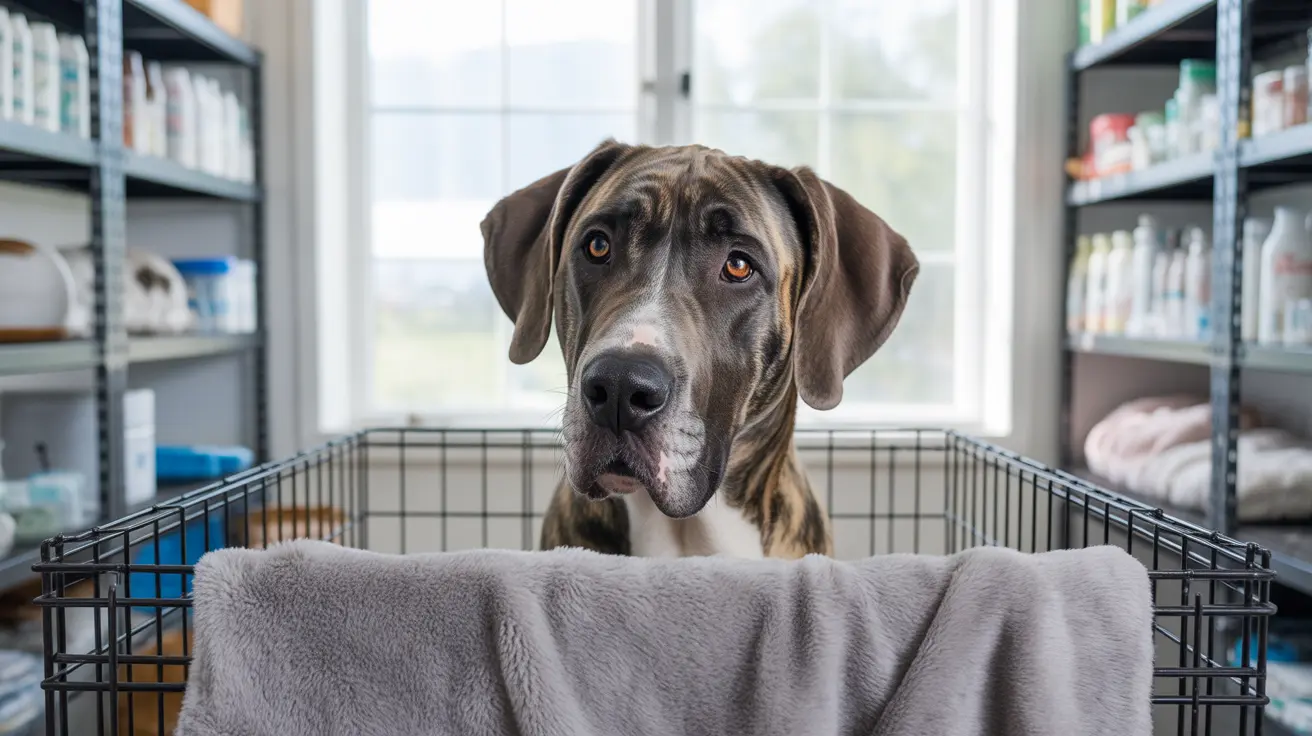As a cat owner, you've likely wondered, "Can cats eat chicken?" The simple answer is yes - cats can safely eat chicken when it's properly prepared. As natural carnivores, cats are well-equipped to digest and benefit from chicken as part of their diet. However, there are important guidelines to follow to ensure your feline friend stays healthy and safe when consuming this popular protein source.
Understanding how to safely prepare and serve chicken to your cat is crucial for preventing potential health issues while maximizing nutritional benefits. Let's explore everything you need to know about feeding chicken to your cat, from preparation methods to portion sizes and potential risks to watch out for.
Safe Preparation of Chicken for Cats
When preparing chicken for your cat, proper cooking methods are essential to eliminate harmful bacteria and ensure safe consumption. Always cook chicken thoroughly until it reaches an internal temperature of 165°F (74°C). Boiling or baking without oils or seasonings is the safest preparation method.
Remove all bones, skin, and excess fat before serving. These components can pose serious health risks to your cat, including choking hazards and digestive issues. Never add seasonings, oils, or marinades - plain, unseasoned chicken is best for your feline companion.
The Role of Chicken in Your Cat's Diet
While cats can eat chicken safely, it should not replace their regular cat food. Commercial cat food is specifically formulated to provide all the nutrients your cat needs for optimal health. Instead, use chicken as a supplement or occasional treat, making up no more than 10% of their daily caloric intake.
Chicken provides essential protein and amino acids that cats need, including taurine, which is crucial for heart and eye health. However, chicken alone doesn't provide the complete nutritional profile your cat requires for optimal health.
Potential Risks and Concerns
Raw chicken poses significant health risks due to bacterial contamination. While some pet owners advocate for raw diets, the risks of food-borne illness from bacteria like Salmonella and E. coli typically outweigh any potential benefits. Additionally, raw chicken may contain parasites that can cause serious health issues in cats.
Chicken bones are particularly dangerous and should never be given to cats. They can splinter, causing choking hazards or internal injuries. Even cooked bones can be dangerous, as they may break into sharp pieces that can damage your cat's digestive tract.
Signs of Chicken-Related Problems
Monitor your cat for any adverse reactions when introducing chicken to their diet. Watch for symptoms such as vomiting, diarrhea, lethargy, or loss of appetite, which could indicate food poisoning or an allergic reaction. If you notice any of these symptoms, discontinue feeding chicken and consult your veterinarian.
In cases where bones have been accidentally consumed, watch for signs of distress such as choking, gagging, drooling, or difficulty breathing. These symptoms require immediate veterinary attention.
Frequently Asked Questions
How should I prepare chicken for my cat to ensure it's safe and healthy?
Boil or bake plain chicken without any seasonings, oils, or additives. Remove all bones and skin, and cut the meat into small, manageable pieces. Ensure it's thoroughly cooked to prevent bacterial contamination.
Can I feed my cat raw chicken, and what are the risks involved?
Feeding raw chicken is not recommended due to the risk of bacterial contamination from pathogens like Salmonella and E. coli. These can cause severe illness in both cats and humans who handle the raw meat.
Are chicken bones safe for cats to eat, and why should they be avoided?
No, chicken bones are never safe for cats. They can splinter and cause choking, internal injuries, or gastrointestinal blockages. Always remove all bones before feeding chicken to your cat.
How much chicken can I safely include in my cat's diet without causing nutritional imbalances?
Chicken should make up no more than 10% of your cat's daily caloric intake. The majority of their diet should consist of complete and balanced commercial cat food to ensure proper nutrition.
What are the health benefits of chicken for cats, and how can it be used as a supplement to their regular diet?
Chicken provides essential protein and amino acids that support muscle maintenance and overall health. It can be used as an occasional treat, food topper, or to encourage picky eaters, but should not replace balanced cat food.
Remember, while chicken can be a healthy addition to your cat's diet when properly prepared, it should always be served in moderation and alongside a complete commercial cat food diet. When in doubt about your cat's dietary needs, consult with your veterinarian for personalized advice.






